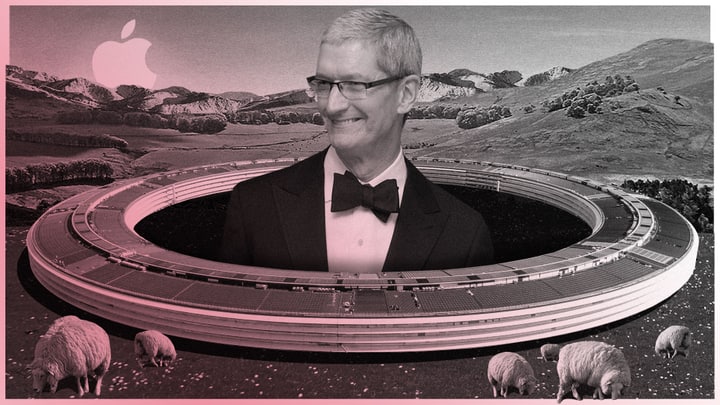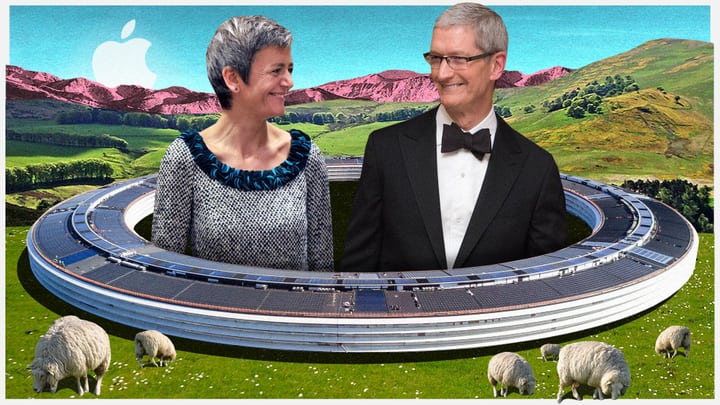Dear Tim Cook
Dear Tim Cook,
You don’t know me, but I know you. Not personally, but from TV, livestreams of your appearances in Cupertino as you unveiled the next iPhone, and of course, from my organization’s newspaper and its website. I am the editor-in-chief of the Süddeutsche Zeitung, Germany’s leading daily and the outlet that obtained the Panama Papers and later the Paradise Papers, which we continue to analyze and report on with colleagues from the New York Times, the Guardian, the International Consortium of Investigative Journalists (ICIJ) and nearly 100 other media organizations.
Yours is one of the most famous and prestigious companies on the planet. Its products are outstanding. The iPhone not only changed the world, it did so faster than virtually any other technological innovation in history. Apple is adored by millions and has achieved cult status. Personally, I have had an iPhone for 10 years. My fingers brush across my iPad every day. At home, a MacBook awaits. If everyone in our newsroom had their choice of work computer and smartphone, I’m confident most people would opt for an Apple device.
My colleagues and I have long followed the debates in the United States and Europe over the taxation of Apple. You, yourself, have often taken a stance on the issue, like you did before the U.S. Senate in 2013. You said at the time that Apple did not “depend on tax gimmicks.” In the Paradise Papers, however, we uncovered information that tarnishes the image of Apple that you try to convey. Questions posed by the Süddeutsche Zeitung and our aforementioned colleagues have gone either unanswered or been met with, at best, tight-lipped platitudes. Why?
Apple employs thousands of excellent, highly qualified engineers, technicians, lawyers, managers and public relations specialists who attended colleges and universities around the world. Many of these institutions of higher education are entirely or partially funded with taxpayer money. Apple directly benefits from the infrastructure – educational or otherwise – that countries maintain. Mr. Cook, you recently told the New York Times that Apple had a “moral responsibility” not only to help grow the U.S. economy, but also “to contribute to the other countries that we do business in.”
Of course we’re aware that Apple is one of the largest taxpayers in the U.S. But what about abroad?
Public filings reveal that between 2010 and 2017, on average, Apple generated two-thirds of its profits outside the U.S. Evidently, it earned $41.1 billion in 2016 and $44.7 billion in 2017. What these filings also show is that since 2010, Apple’s foreign-earned income has been taxed at a rate of between 1 and 7 percent. Mr. Cook, do you believe this comports with the “moral responsibility” you have advocated? Such “tax optimization” – albeit legal – is only possible because specialized law firms such as Appleby devise complex company structures inaccessible to most other firms. Skilled workers, small business owners and employees in most countries outside the U.S., many of whom surely use Apple products, don’t have the means to shirk ordinary taxes.
In Germany, Apple is estimated (you don’t publish the exact figures) to have generated revenues in the billions last year – of which it paid 25 million euros in taxes. In other words, only 0.2 percent of the taxes that Apple paid worldwide ended up here. This does not even remotely stand in relation to the percentage of global sales and profits Apple logged in Germany. I’m sure you can appreciate the difficulty we have explaining this to our readers.
But what unsettles me the most is the way in which Apple instructed a law firm to obtain an “official assurance of tax exemption” from the government of a country. Why do you want that? Why do you feel entitled to not pay any taxes in a country? Did you want to make zero-tax status a precondition for establishing tax residency there? What gives you the right to do so?
And what understanding of democracy are we supposed to discern from the question you had this law firm ask? The one about whether the country had a “credible opposition party” or “movement that may replace the current government?” Were you trying to ensure that you would be able to retain tax-free status even after elections or a change in government?
Mr. Cook, the Süddeutsche Zeitung and our readers are still awaiting answers to a litany of questions.
Apple bills itself as a transparent company. If this is true, then there really isn’t any reason to stay silent, is there?
Best regards,
Wolfgang Krach
Editor-in-Chief, Süddeutsche Zeitung


